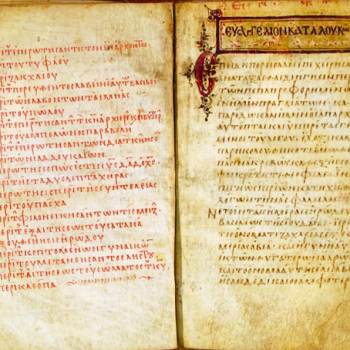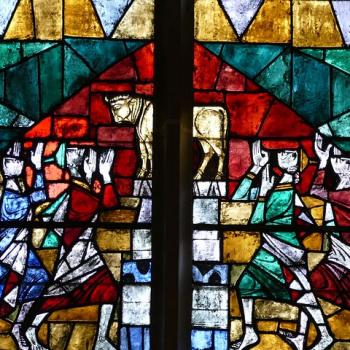Jewish Reflection -- By Marion Lev-Cohen
In the Qur'an and hadith as well as the Bible and midrash, Zuleikha's story is tied together with Joseph's. This connection, among others, invites us to examine the intriguing differences between these two traditions regarding the role and personality of Joseph. In brief, the Yusuf of the Qur'an is a blemish-free individual, a virtuous Prophet. Throughout the sura containing the Yusuf story, his behavior is impeccable. This portrayal stands in direct contrast to the biblical narrative, which portrays Joseph as a deeply flawed, vain, and narcissistic youth who gradually learns to be aware of other people's needs and feelings. Joseph's journey to Egypt is a metaphor for the psychological journey he takes as he moves from an immature naar (interpreted as youth, but also as naïve) to the selfless and forgiving brother we meet in his later encounter with his brothers as the vizier of Egypt.
In the Bible, Potiphar's wife (the Qur'anic "Zuleikha") is portrayed as the consummate seductress of the young and beautiful Joseph. She joins the ranks of the other seductresses who tempt virtuous men. We recall Adam and Lilith, Samson and Delilah. In contrast to the Qur'an, Potiphar's wife is not displayed as a complex character blinded by Joseph's beauty, nor does she finally confess and repent for her sins. She is merely a foil for Joseph's virtue.
This characterization as the evil temptress has continued into early rabbinic times. Potiphar's wife is likened to an animal because of her indelicate way of commanding Joseph to lie with her. "But this one [Potiphar's wife] was like a beast: ‘Lie with me!'" (Gen. Rabbah 87:7).
On the other hand, Midrash Tanchuma, a 6th-century homiletic work, is more even-handed in its description of the main protagonists. Both Joseph and Potiphar's wife are more complex and nuanced characters. Potiphar's wife attempts to exonerate herself by demonstrating the irresistible nature of Joseph's beauty. Unlike the other traditions, in this midrash, Joseph is said to bear responsibility for all the evils that befell him because of telling tales about his brothers.
As modern feminist scholars seek to plumb the clues to understand the role women played in the Bible, their research of the many narratives and homilies written about the Yusef/Joseph story generate varying interpretations of the relationship between Joseph and Potiphar's wife. May the rich stories of our ancestors continue to serve as guides for us in our modern day relationships.
This article was first published by Altmuslimah, a Patheos Partner, and is reprinted with permission.
Asma T. Uddin is Editor-in-Chief of Altmuslimah.
Homayra Ziad is Assistant Professor of Religion at Trinity College, where she teaches courses on Islam. Her scholarly interests include intellectual and cultural trends in Muslim India, theoretical Sufism, women's religious production, theologies of pluralism, and Qur'anic hermeneutics.
Rachel Barenblat is a student in the ALEPH rabbinic program. She holds an MFA in Writing and Literature from Bennington, and is author of three chapbooks of poetry, most recently Chaplainbook (Laupe House Press, 2006), a collection of poems arising out of hospital chaplaincy work.
Marion Lev-Cohen is in her last year of rabbinical school at HUC/JIR, and is a clinical social worker by training. She currently serves as the rabbinic intern at Central Synagogue in New York.




